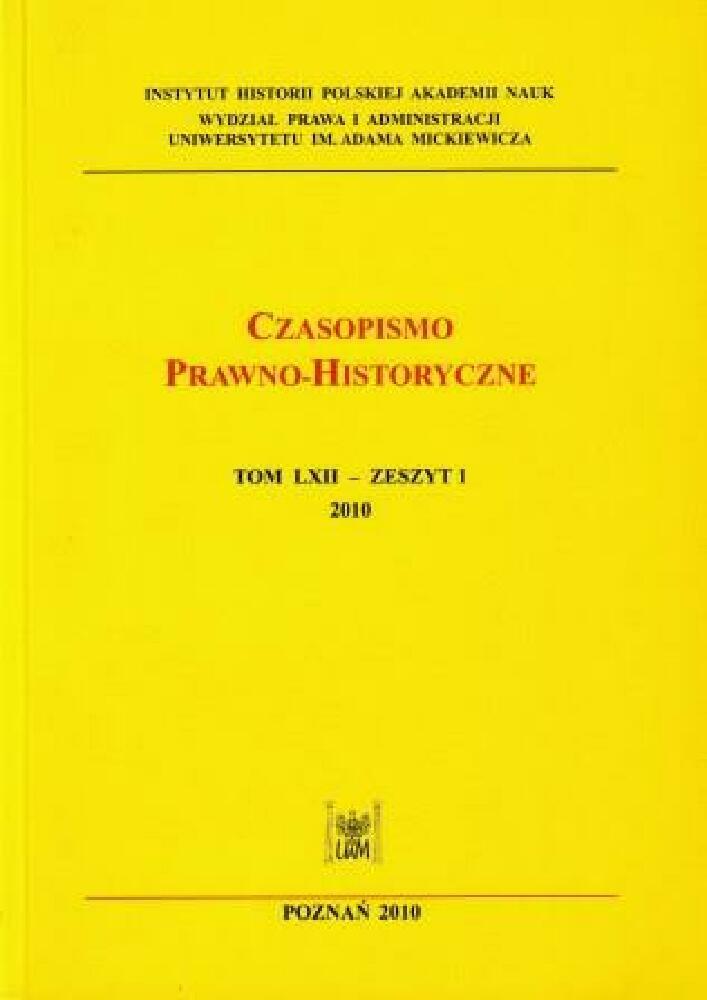Abstrakt
The paper discusses jurisdiction of the Consistory in matrimonial matters in the central part of Poland between 1919-1939, where, pursuant to the matrimonial law of 1836, jurisdiction in matters such as separation, divorce and nullification of marriage was vested in certain church courts. Decisions issued by those churches were recognised as binding and effective decisions in civil law as well. The main considerations focus of the scope of civil jurisdiction of church courts, and, in particular, their jurisdiction as demarcated by the law. Under that law, matrimonial matters were submitted to a church court that was relevant for the religious faith of the spouses in question. Where spouses were of two different denominations, proper jurisdiction for them was determined by the interdenominational matrimonial law of 1836. However, adjudications of church courts other than RC church court were not always accepted by the dominant RC church. This led to frequent disputes regarding their recognition by civil courts. The key subject of the research is the denominational aspect of the jurisdiction of a church court. The paper also includes different interpretations of the interdenominational provisions formulated by leading theoreticians of the interwar period. As can be seen, the differences of their opinions as well as incoherent jurisdiction of the Supreme Court created many doubts with regards to the enforcement of a decision in a matrimonial matter issued by a church court with improper jurisdiction. And so, in its decision of 8 November 1926 the Supreme Court adjudicated that a state court was empowered to investigate the jurisdiction of a church court which has issued a decision in a matrimonial matter. At the same time, however, it took a stance that the provisions of the state interdenominational law should be absolutely binding. And yet, in some other cases it tended to marginalise the state law and allowed to base civil jurisdiction of a RC court entirely on canon law. These examples illustrate a tendency of the Supreme Court to favour broad construction of the principle laid down in Article 114 of the Constitution that the Roman Catholic Church in Poland should be governed by its own laws.
Finansowanie
Digitalizacja i Otwarty Dostęp dofinansowane przez Ministra Edukacji i Nauki w ramach umowy nr BIBL/SP/0002/2023/1
Licencja
Copyright© 2010 Wydział Prawa i Administracji UAM w PoznaniuOPEN ACCESS




